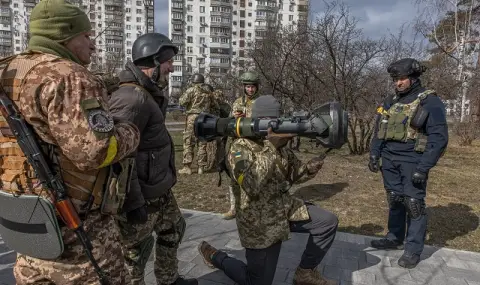< p>As the war in Ukraine continues, arms manufacturers in the Western Balkans are booming. The production of weapons has increased several times, writes The Economist.
Since the breakup of Yugoslavia in the 1990s, terrorists and gangsters have enjoyed a large number of weapons. Now it is the turn of Western governments. At a time when war is raging in Ukraine, they are seizing ammunition and mortars from the region. Weapons manufacturers from the Western Balkans are on the rise. Serbian arms exports have quadrupled since 2020, with around €800 million (BGN 1.6 billion) of its ammunition going to Ukraine after the invasion. Bosnia's exports in the first four months of 2024 have almost doubled compared to the same period last year. Its munitions factories work around the clock, says Yasmin Mujanovic of the New Lines Institute for Strategies and Policies, a research center.
According to The Economist, Serbian arms exports have quadrupled since 2020: after Russia's invasion of Ukraine, Serbia delivered ammunition worth around 800 million euros. Bosnia's exports almost doubled in the first four months of 2024 compared to the same period last year. Its munitions factories operate around the clock.
These countries are able to produce so many weapons because they once had a large military supported by a vast military industrial complex. The remnants of the defense industry are now concentrated in Bosnia and Serbia, which provide over 90% of the military exports of the Western Balkans.
According to the publication, of particular interest to Ukraine and its supporters is the industry's ability to produce ammunition and equipment to Soviet and NATO standards. In addition, a Bosnian shell can cost a quarter less than a Western one.
Although both Bosnia and Serbia have laws in place that prohibit them from selling weapons in war zones, these countries have found workarounds through third countries. For example, the main buyer of Bosnian cartridges is the United States, which redirects them to Ukraine. But Serbia, despite its refusal to impose sanctions on Russia, is sending thousands of artillery shells through the Czech Republic, Turkey and front companies. NATO's Balkan members - Croatia, Albania, Montenegro and North Macedonia - handed over a significant portion of their stockpiles of old Soviet weapons. However, Croatia is likely to repair the worn-out Kuwaiti M-84 tanks (the Yugoslav version of the Soviet T-72), which will be sent to Ukraine, adds RBC-Ukraine.
The Economist believes that for some Balkan governments such weapons production is an opportunity to gain political trust in America and the European Union. This is particularly true for those aspiring to join the EU, such as Bosnia and Albania. Bosnian munitions factories, once on the brink of closure, are now fully staffed.
As for Serbia, for its president Aleksandar Vucic, selling arms to Ukraine is as much part of the delicate balancing act between the West and Russia as it is good business.
